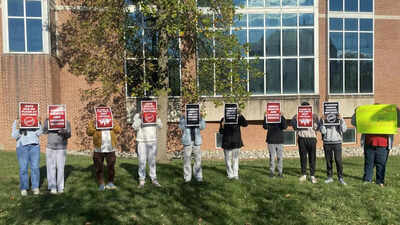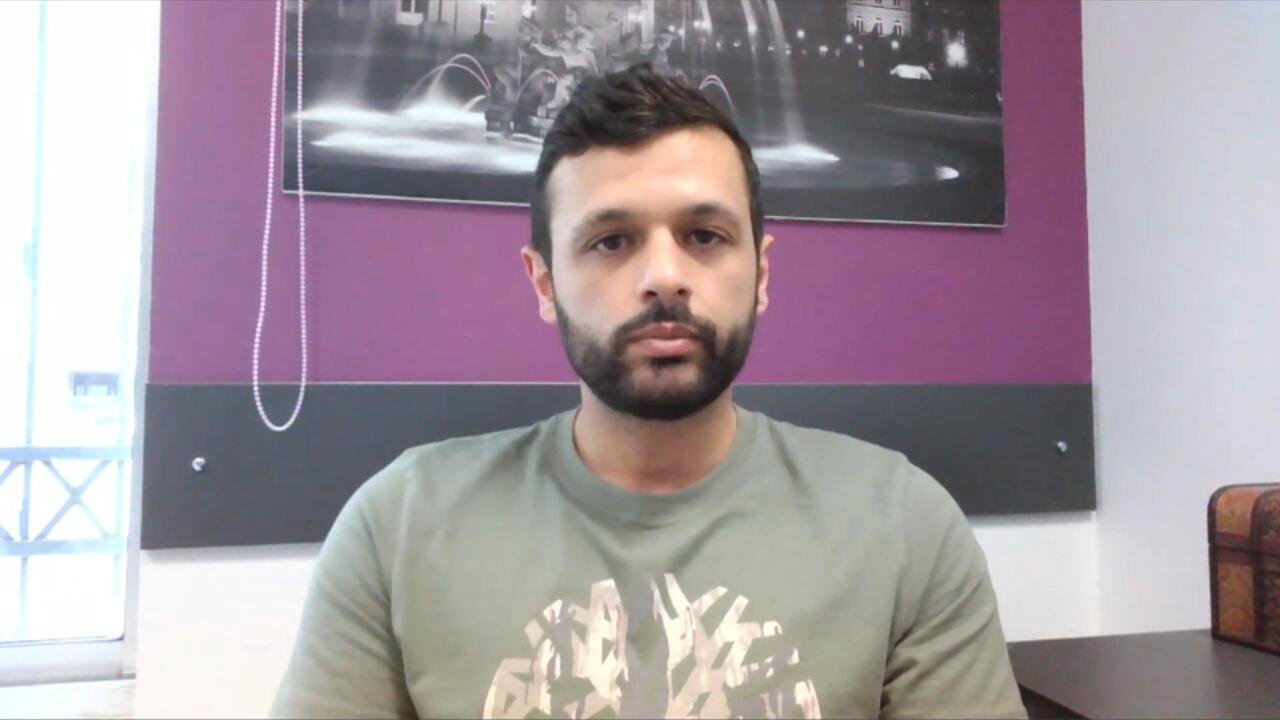
A silent protest at Rutgers University in New Jersey has ignited debate over how Hindu identity is being framed in academic spaces. Students, faculty members, and community supporters gathered outside Alexander Library as a lecture titled “Hindutva in America: A Threat to Equality and Religious Pluralism” took place inside.
The protestors, many of whom are part of Hindu student organisations, say the event wrongly links Hindu cultural identity with extremist political ideology, leaving Hindu students feeling targeted on campus.Earlier this month, concerns over the issue were raised at the federal level when four US Congressmen wrote to Rutgers’ administration, warning that conflating Hindu identity with extremist ideology could lead to bias, targeting, or profiling of Hindu American students.
The lawmakers emphasized that Hindu Americans are a minority faith community in the United States and deserve the same protections as any other religious group. They cautioned against implying that Hindu student organisations are politically aligned or influenced by foreign movements, noting that these groups primarily celebrate festivals, provide community support, and maintain cultural traditions. The letter urged Rutgers to ensure that academic freedom does not create a hostile campus environment, and that students are able to express their faith without fear or stigma.
The lecture and the student objections
The event, hosted by the Rutgers Center for Security, Race and Rights (CSRR), focused on how far-right Hindu nationalism in India has affected Muslim American communities. The discussion was moderated by Sahar Aziz, professor of law at Rutgers, and featured Audrey Truschke, professor of history and Asian studies.The protest was organised by the student-led Hindu advocacy group Rutgers CYAN, which has repeatedly raised concerns about a CSRR report released in June.
CYAN argues that the report does not sufficiently separate Hindutva (a political ideology) from Hinduism (a religion) and risks creating a campus climate in which Hindu students or organizations are viewed as extremist-affiliated.Hindutva, which the report defines as a modern political ideology advocating for Hindu supremacy and the transformation of India into a Hindu nation, is compared in the document to white Christian nationalism, Zionism, and Islamophobia.
The report also argues that some U.S.-based Hindu organizations have supported or promoted Hindutva-linked narratives, and claims that critiques of Hindutva are sometimes dismissed as anti-Hindu prejudice.Rutgers CYAN disputes this, stating that the report could lead to investigations or penalties directed at Hindu student groups on campus. One member said, “We were standing up against the labeling of Hindu student organizations at Rutgers as extremist groups.” Several students expressed worry that international Hindu students may feel especially vulnerable, particularly regarding immigration status or academic evaluation.Signs held at the protest read:“Hindu rights are human rights”“Hate has no place at Rutgers”“American Hindus are not foreign agents”Rutgers Hindu Chaplain Hitesh Trivedi said many Hindu students are hesitant to speak publicly due to concerns about backlash.
He urged the university to clarify that criticism of Hindutva is not grounds to suspect Hindu students of political affiliation.
CSRR and academic response
CSRR and the lecture’s speakers maintain that their focus is strictly on Hindutva as a political movement, not Hinduism as a religion. Truschke stated that critique of Hindutva falls under the study of global nationalism and is not an attack on Hindu identity. She also said Rutgers CYAN is affiliated with the Coalition of Hindus of North America (CoHNA), which she described as a Hindu nationalist organisation.CoHNA president Nikunj Trivedi rejected that characterization, saying he has never contacted or harassed Truschke and that challenging academic portrayals of Hinduism is not extremism. Trivedi argued that responding to claims about Hindu texts or traditions is a matter of community representation and free speech.

 2 hours ago
1
2 hours ago
1









 English (US) ·
English (US) ·